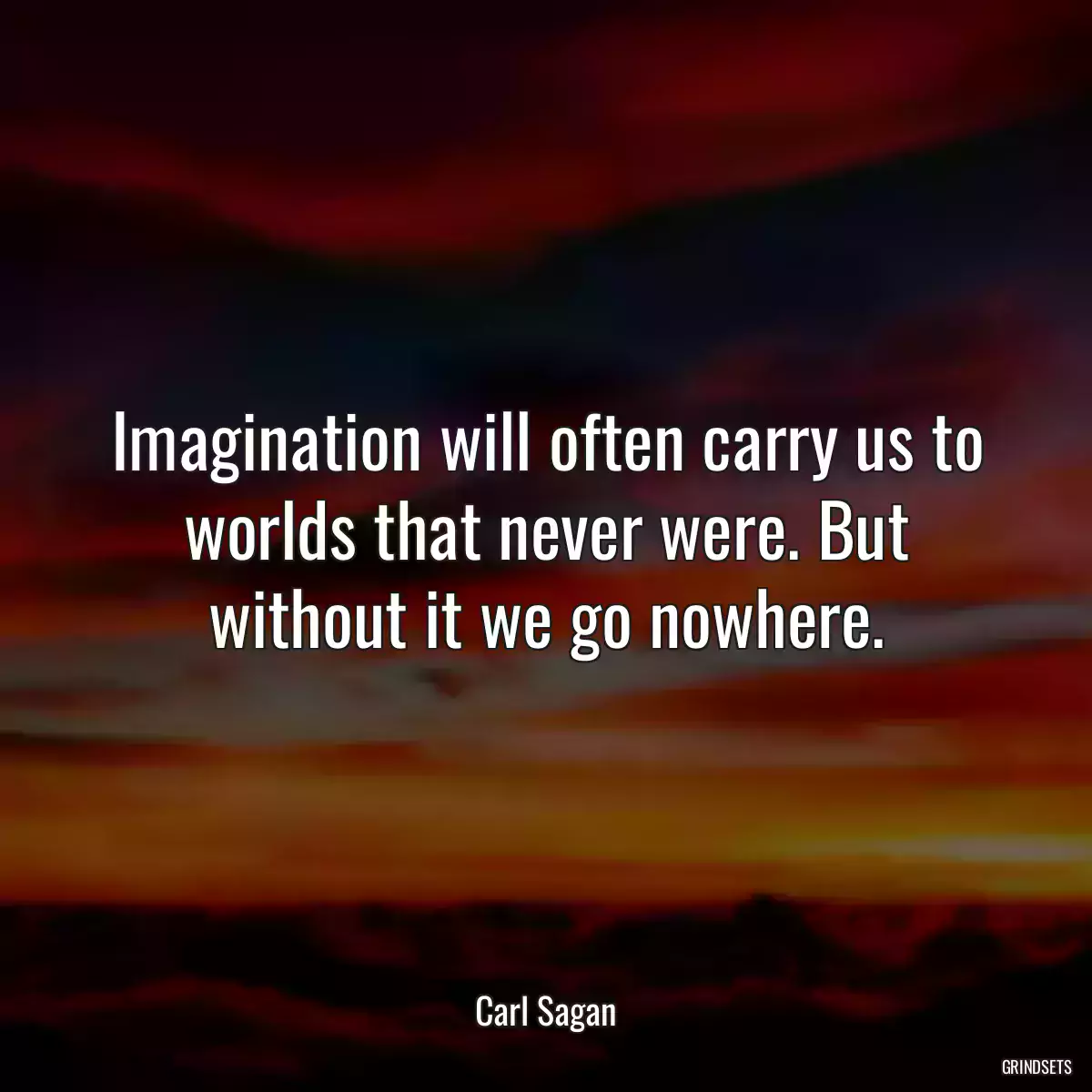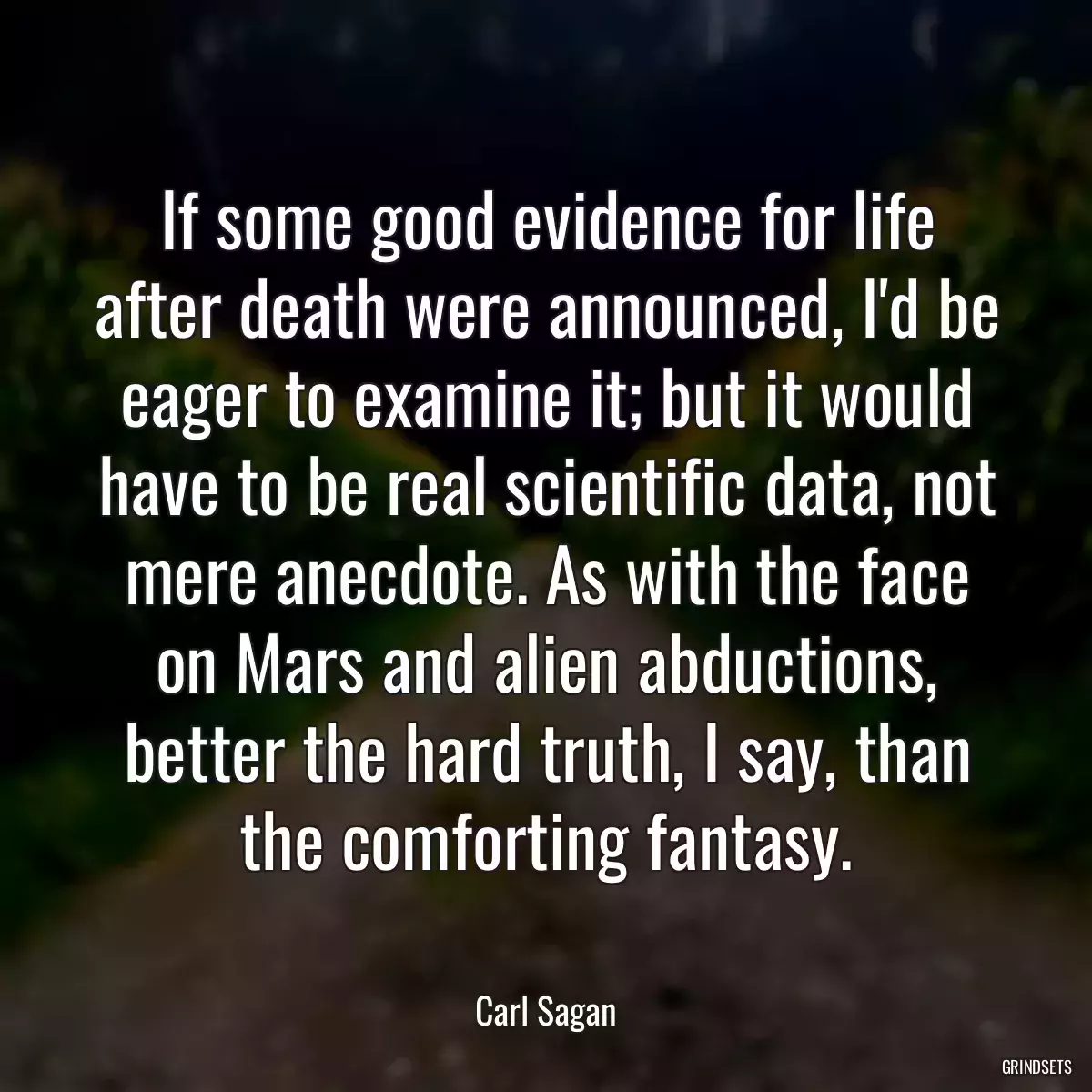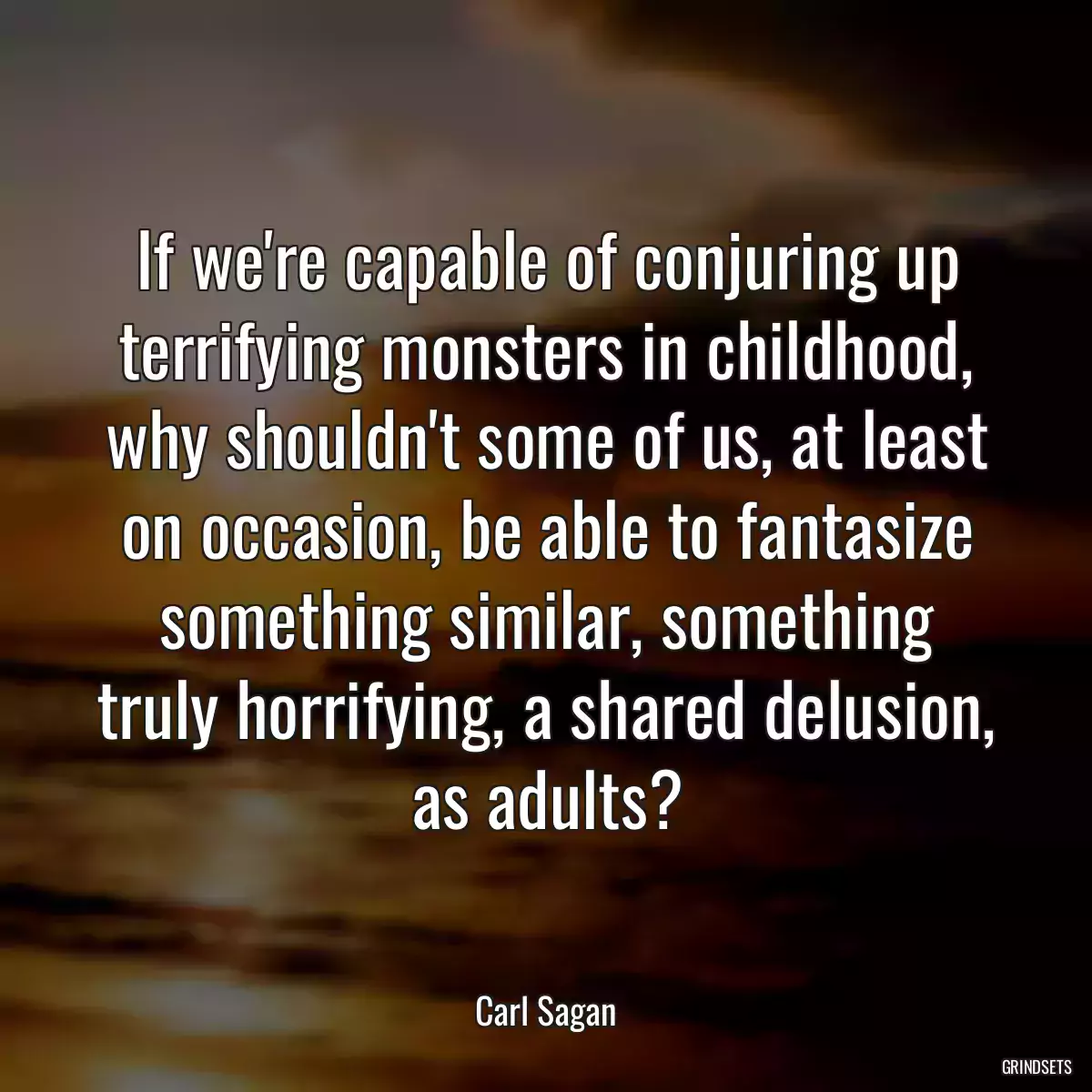
Quotes Carl Sagan
Find dozens of Carl Sagan with images to copy and share.

For small creatures such as we the vastness is bearable only through love.
If the constellations had been named in the twentieth century, I suppose we would see bicycles and refrigerators in the sky.
Probably a dozen times since their death I've heard my mother or father, in an ordinary conversational tone of voice, call my name. They had called my name often during my life with them ... It doesn't seem strange to me.
You may also like
The method of science is tried and true. It is not perfect, it's just the best we have. And to abandon it, with its skeptical protocols, is the pathway to a dark age.
Science arouses a soaring sense of wonder. But so does pseudoscience. Sparse and poor popularizations of science abandon ecological niches that pseudoscience promptly fills. If it were widely understood that claims to knowledge require adequate evidence before they can be accepted, there would be no room for pseudoscience.
Indeed the reasoned criticism of a prevailing belief is a service to the proponents of that belief; if they are incapable of defending it, they are well advised to abandon it. This self-questioning and error-correcting aspect of the scientific method is its most striking property.
And after we returned to the savannahs and abandoned the trees, did we long for those great graceful leaps and ecstatic moments of weightlessness in the shafts of sunlight of the forest roof?
But amid much elegance and precision, the details of life and the Universe also exhibit haphazard, jury-rigged arrangements and much poor planning. What shall we make of this: an edifice abandoned early in construction by the architect?

If we offer too much silent assent about mysticism and superstition - even when it seems to be doing a little good - we abet a general climate in which scepticism is considered impolite, science tiresome, and rigorous thinking somehow stuffy and inappropriate.
I have a foreboding of an America in my children's or grandchildren's time - [...] when awesome technological powers are in the hands of a very few, and no one representing the public interest can even grasp the issues; when the people have lost the ability to set their own agendas or knowledgeably question those in authority; when, clutching our crystals and nervously consulting our horoscopes, our critical faculties in decline, unable to distinguish between what feels good and what’s true, we slide, almost without noticing, back into superstition and darkness.
Is it fair to be suspicious of an entire profession because of a few bad apples? There are at least two important differences, it seems to me. First, no one doubts that science actually works, whatever mistaken and fraudulent claim may from time to time be offered. But whether there are any miraculous cures from faith-healing, beyond the body's own ability to cure itself, is very much at issue. Secondly, the expose' of fraud and error in science is made almost exclusively by science. But the exposure of fraud and error in faith-healing is almost never done by other faith-healers.
Goddard represented a unique combination of visionary dedication and technological brilliance. He studied physics because he needed physics to get to Mars. In reading the notebooks of Robert Goddard, I am struck by how powerful his exploratory and scientific motivations were - and how influental speculative ideas, even erroneous ones, can be on the shaping of the future.
Perhaps, in retrospect, there would be little motivation even for malevolent extraterrestrials to attack the Earth; perhaps, after a preliminary survey, they might decide it is more expedient just to be patient for a little while and wait for us to self-destruct.
Not all birds can fly. What separates the flyers from the walkers is the ability to take off.
Many statements about God are confidently made by theologians on grounds that today at least sound specious. Thomas Aquinas claimed to prove that God cannot make another God, or commit suicide, or make a man without a soul, or even make a triangle whose interior angles do not equal 180 degrees. But Bolyai and Lobachevsky were able to accomplish this last feat (on a curved surface) in the nineteenth century, and they were not even approximately gods.
If we are not able to ask skeptical questions, to interrogate those who tell us that something is true, to be skeptical of those in authority, then, we are up for grabs for the next charlatan (political or religious) who comes rambling along.
You may also like

We seem, these days, much more willing to recognize the perils before us than we were even a decade ago. The newly recognized dangers threaten all of us, equally. No one can say how it will turn out down here. But this is also, we may note, the first time that a species has become able to journey to the planets and the stars. Sailors on a becalmed sea, we sense a stirring of the breeze.